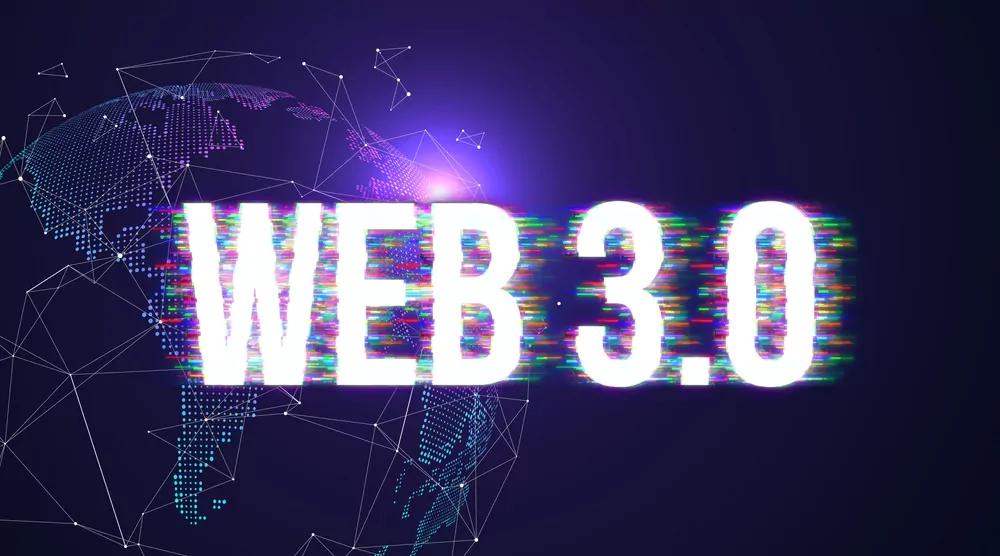


The internet has undergone significant evolutions since its early days. Web 1.0 consisted of static web pages with read-only information. Web 2.0 introduced social media, user-generated content, and interactive technologies, marking the rise of companies like Facebook, Twitter, and YouTube.
Now Web 3.0, also known as the "decentralized web," is emerging with blockchain, cryptocurrency, and decentralization at its core. Web 3.0 promises to disrupt existing internet business models and change how users interact online.
Here's what you need to know about Web 3.0 and how it may impact the future internet:
What is Web 3.0?
Web 3.0 refers to a vision of a decentralized internet that incorporates blockchain, cryptocurrency, and distributed networks. The goal is for Web 3.0 platforms and applications to be:
Decentralized - No single entity controls the networks or users' data. Governance and control are distributed.
Open-source - Technologies and standards are freely accessible and not owned by any company. Anyone can build on and contribute to Web 3.0 networks.
Semantic - Data is highly connected and intelligent, allowing machines and networks to understand the meaning and context of information. This enables new possibilities for search and discovery.
Immutable - Records on the blockchain cannot be changed or deleted, providing trust and transparency. Users have provable and permanent identities and reputation.
Tokenized - Much of the activity and interaction in Web 3.0 will involve cryptocurrencies, tokens, and new means of exchange facilitated by blockchain technology.
Self-governing - Decentralized autonomous organizations and networks rely on crowd-based governance models rather than hierarchical control. People work together voluntarily with built-in incentives.
Privacy-focused - Web 3.0 prioritizes users' control and privacy of personal data and information. Techniques like zero-knowledge proofs allow for confidential transactions and communications on public networks.
Drivers of Web 3.0
Several technological and social factors are driving the emergence of Web 3.0:
Blockchain and cryptocurrencies - Decentralized blockchain networks enable new types of digital assets, exchanges, and marketplaces that disrupt traditional finance and commerce.
The decentralization movement - People increasingly value transparency, freedom of information, and personal empowerment. Web 3.0 networks provide an open alternative to big tech platforms.
Growth of open-source technologies - Technologies like blockchain, cloud computing, open data, and AI are now widely available for anyone to build upon. This fuels rapid open-source progress.
Data privacy concerns - Events like the Cambridge Analytica scandal and large-scale data breaches have people concerned about how companies are using their personal data. Web 3.0 gives users control of their data.
Generational shifts - Younger generations, especially millennials and Gen Z, deeply value purpose, transparency, and decentralization. Web 3.0 is well-positioned to meet their digital values and needs.
Global connectivity - 5G wireless networks and expanding internet infrastructure around the world will provide the connectivity for truly decentralized and distributed web services.
AI and automation - As artificial intelligence, smart contracts, and bots become more advanced, they will increasingly power semantic, self-governing networks and organizations in Web 3.0.
Implications of Web 3.0
Web 3.0 could significantly impact businesses, governments, and how we live and work:
Disruption of major tech companies - Centralized platforms like Google and Facebook may face challenges from decentralized Web 3.0 networks where users control their own data and identities. Some big tech companies are investing in Web 3.0 to stay relevant.
New business models - Web 3.0 enables entirely new types of companies based on blockchain, tokens, decentralized finance, cloud services, and open data. This includes exchanges, wallets, apps, marketplaces, and more. Web 3.0 startups are attracting major venture funding.
Changes to payments and banking - Cryptocurrencies could become a mainstream payment method and store of value. Decentralized finance built on tokens and blockchain will transform lending, borrowing, saving, and investing. Banks must adapt to stay competitive.
Personalized education - Web 3.0 makes it possible for people to take control of their education through competence-based pathways, personalized learning, and owning their lifelong skills records. Massive open online courses (MOOCs) gain more relevance.
Privacy and security - With users directly controlling their data and identities in Web 3.0 networks, no organization has access to large centralized pools of personal information, limiting risks of hacking and surveillance. However, decentralization may also introduce new privacy and security challenges.
Global trade - Web 3.0 has significant implications for global trade and supply chain management. For example, companies can use blockchain for transparent and secure tracking of goods, payments, and credentials across borders. Smart contracts enable more automation in trade processes.
New governance models - Decentralized autonomous organizations that govern themselves through blockchain and crowdsourcing could reimagine how groups achieve coordination and make decisions. However, fully autonomous governance also brings risks that need consideration.
Web 3.0 is an ambitious vision for the next generation of an open, personal, and decentralized internet. While the implications will depend on how much progress is made in materializing this vision, Web 3.0 has the potential for transformative disruption. Overall, Web 3.0 seeks to put power and privacy back in the hands of users - a welcome change that could reinvent online communities and commerce.
In summary, Web 3.0 aspires to fix the centralization of power and data in Web 2.0, returning control and privacy to users in a open, democratic, and efficient manner. But how will Web 3.0 come about and what will it mean for companies and people?
